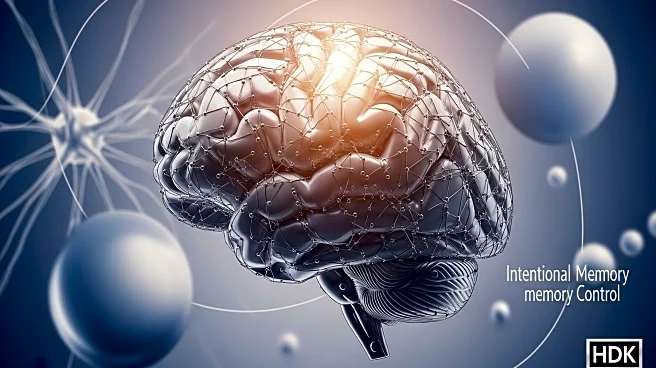What is the story about?
What's Happening?
A recent study published in Frontiers in Behavioral Neuroscience reveals that intentional memory control, or the conscious decision to remember or forget information, is more effective in forming long-term memories than emotional influence. The research involved participants who were instructed to remember or forget certain words, some of which had negative emotional associations. The findings showed that participants were more likely to recall words they were explicitly told to remember, rather than those with emotional weight. Interestingly, while sleep itself did not enhance memory performance, certain brain waves during sleep, such as sleep spindles, were linked to better recall of emotional material.
Why It's Important?
This study challenges the common belief that emotional experiences are the primary drivers of memory retention. By highlighting the power of intentional memory control, it suggests that individuals have more agency over their memory processes than previously thought. This could have significant implications for educational strategies, therapeutic practices, and cognitive training programs, where intentional focus and memory techniques could be emphasized over emotional engagement. Additionally, understanding the role of sleep in memory consolidation could lead to improved methods for enhancing memory retention through sleep management.
What's Next?
Further research is needed to explore the mechanisms by which intentional memory control operates and how it can be optimized in various settings. The study's findings also open avenues for investigating how different types of sleep brain waves contribute to memory processes, potentially leading to new approaches in sleep therapy and cognitive enhancement. Researchers may also look into how these findings can be generalized across different populations, as the current study primarily involved college students.
Beyond the Headlines
The study's insights into memory control could influence how society approaches learning and memory-related disorders. By understanding that intentional focus can outweigh emotional salience, there may be a shift towards developing cognitive tools that empower individuals to harness their memory capabilities more effectively. This could also lead to ethical discussions about the potential for manipulating memory processes in therapeutic or educational contexts.














